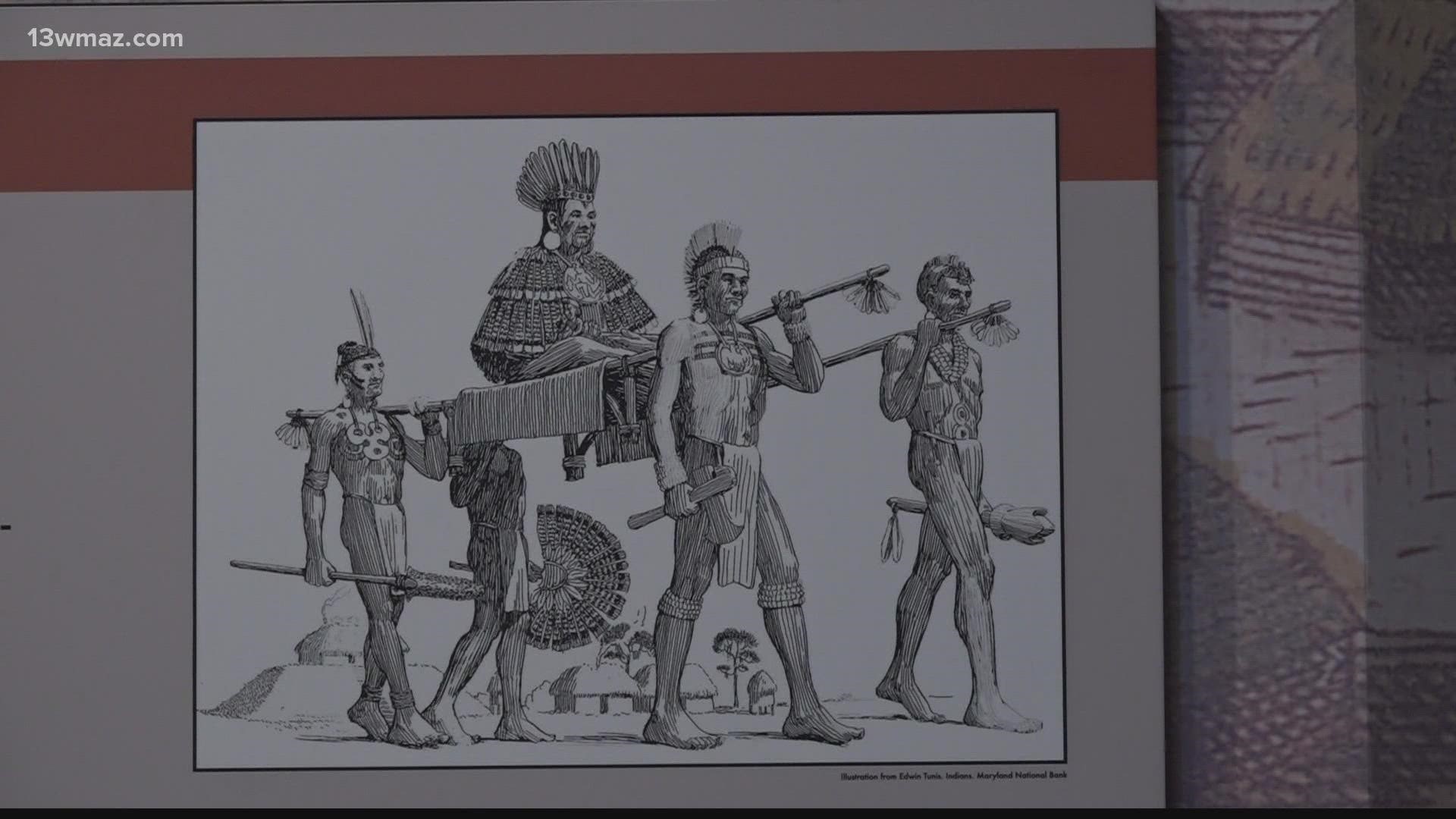MACON, Ga. — Before the settlers took over central Georgia in 1827, the Muscogee Creek Nation occupied the region. Friday, the Ocmulgee Mounds Association brought back their Indigenous Celebration after going virtual because of the pandemic. Many visitors came for a preview before the event, and it's their first time.
"They gave me an opportunity as one of the youth members at the dorm," said Micco Harjo.
Harjo and some of his classmates made the 13-hour drive from Eufaula, Oklahoma to Macon. The part-Muscogee tribe member says it's important for people to learn where the states Indigenous tribes originates.
"So they have a better understanding of how we lived on it before them and how we had all these ceremonies, these traditions, and how we lived," the 18-year-old said.
In 1827, the Creeks were forced by the U.S. government to move to Oklahoma from Ocmulgee during the Trail of Tears. Harjo says he looking forward to the two day event.
"I was really excited to walk around the trails, the mounds and obviously seeing the river and everything. And learning the history of this place. Native Americans and this place in general actually," Harjo said.
Second Chief of the Muscogee Creek Nation, Dell Beaver, has been to the celebration at Ocmulgee Park for more than five years. He hopes people understand the life of Native Americans and how the The Creeks made their way from Georgia to Oklahoma.
"You know it wasn't a bed of roses, you know as some people portray it. It wasn't an agreement that we made, it was forced removal, and that even though all these atrocities happened to us, we not only survived we thrived," he said.
While the Creeks are originally from Georgia, he hopes to go into schools and teach about their culture and heritage.
"We'd be more than happy to zoom in and have one of the teachers teach the history," Beaver said.
Both Beaver and Harjo say they are proud their culture and heritage lives on at Ocmulgee Park.
"It is still my identity, it is a part of me that I live with everyday and I stand proud with it, I stand behind it, I stand in front of it all, and I love it. Every single aspect of being Indigenous," Harjo said.

